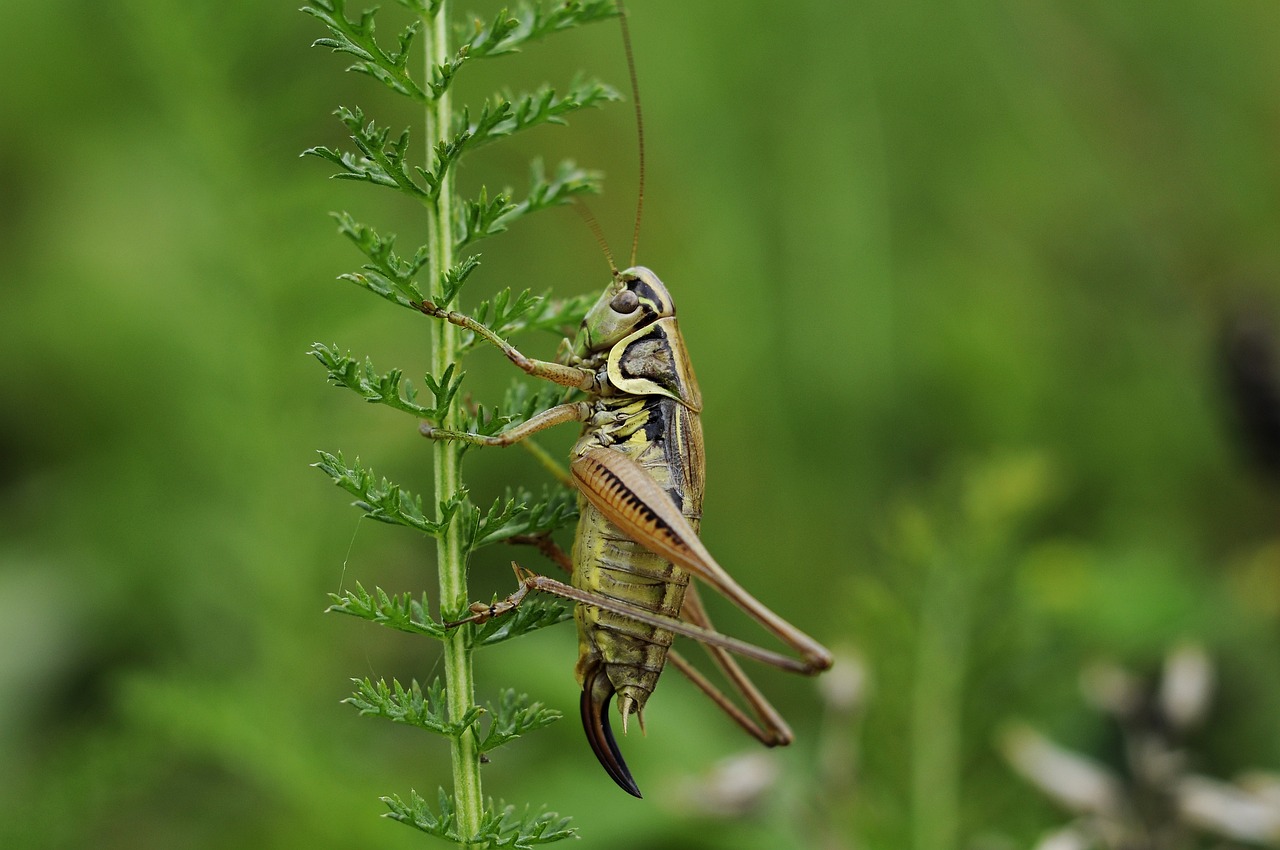When you’re enjoying a summer evening or a sunny day outdoors, you might notice the sounds and sights of various insects hopping or chirping around you. Two of the most common culprits behind these sights and sounds are crickets and grasshoppers. But what is the difference between grasshopper and cricket? Understanding the distinction between these two insects is crucial, especially if you’re trying to manage them in your home or garden. In this blog post, we’ll break down everything you need to know about cricket vs grasshopper.
What Are Crickets?
Crickets are small insects that belong to the Gryllidae family. They’re famous for the chirping noise they make, which is created by rubbing their wings together. But did you know that not all crickets make noise? Crickets do have wings, but not all species are great fliers. Instead, they use their wings primarily for chirping.
What Does a Cricket Look Like?
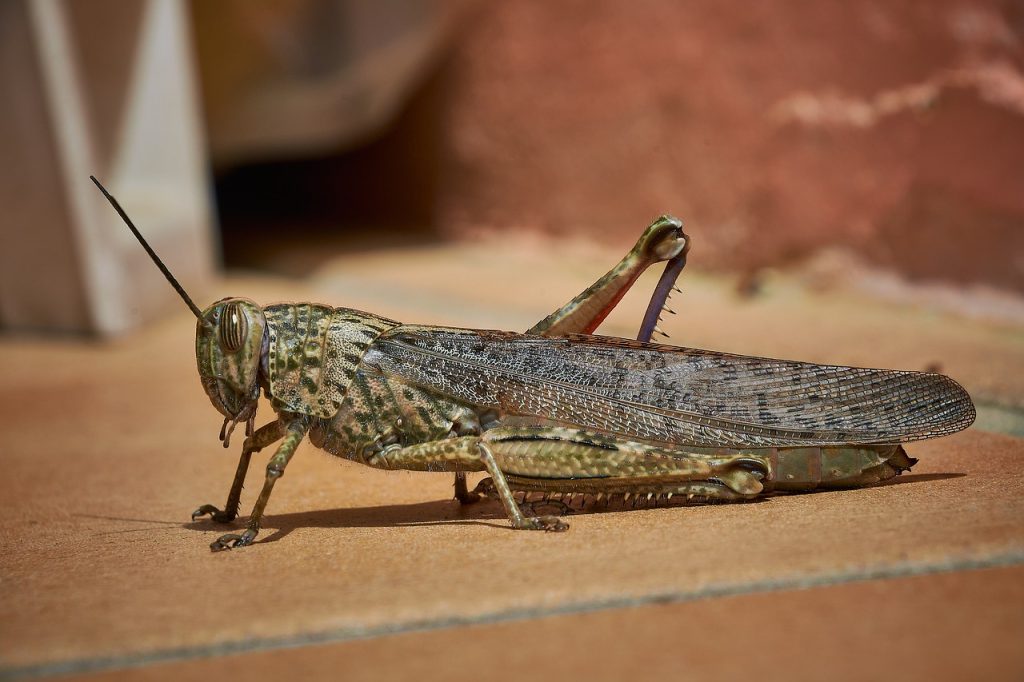
Crickets are typically brown or black, featuring long antennae and flattened bodies.
How Many Legs Do Crickets Have?
Like all insects, crickets have six legs, with strong hind legs that allow them to jump efficiently.
Are Crickets Nocturnal?
Yes, crickets are nocturnal and most active at night. This is when you’ll hear their characteristic chirping, which they use to attract mates.
Does a Cricket Have Wings? Can Crickets Fly?
Yes, crickets have wings, but not all species are strong fliers. Their wings are primarily used for making their chirping sound.
What Are Grasshoppers?
Grasshoppers belong to the Caelifera suborder and are closely related to crickets, but they have some key differences:
Grasshopper Varieties and Appearance
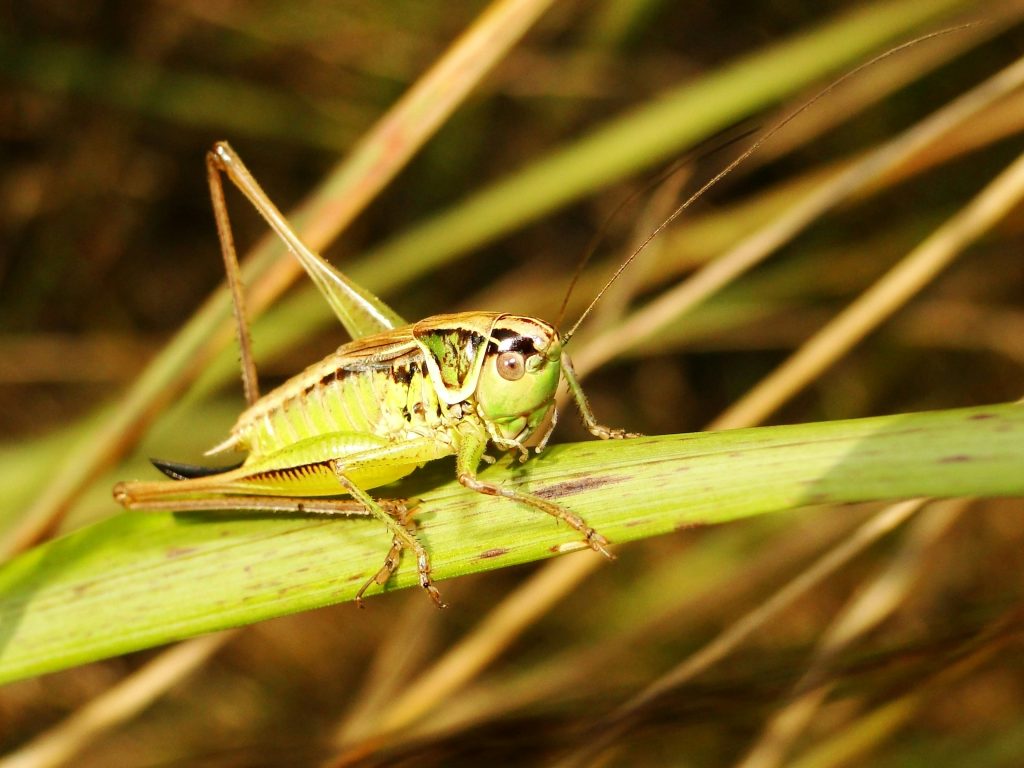
Grasshoppers are typically green or brown, blending well with their grassy environments. They have shorter antennae compared to crickets and a more robust body. Their coloration helps them camouflage in their habitats. There are different kinds of grasshoppers, and each species has its own unique characteristics.
Does a Grasshopper Have Wings? Can Grasshoppers Fly?
Yes, grasshoppers do have wings, and they are quite good at flying. They use their strong hind legs to leap into the air and then their wings to glide or fly to a new location.
Do Grasshoppers Make Noise?
Unlike crickets, grasshoppers make noise by rubbing their hind legs against their wings. The noise they make is more of a buzzing noise than the melodic chirp of a cricket.
What Is the Difference between a Cricket and a Grasshopper?
So, are crickets and grasshoppers the same? Not quite! Here’s a quick breakdown of the difference between grasshopper vs crickets:
- Antennae: Crickets have long, thin antennae, while grasshoppers have shorter, thicker ones.
- Body Shape: Grasshoppers have broader, more robust bodies, whereas crickets are more flattened.
- Wings and Flight: Both insects have wings, but grasshoppers are better fliers. Crickets can fly, but not as effectively as grasshoppers.
- Sound Production: Crickets make noise by rubbing their wings together, while grasshoppers rub their legs against their wings.
- Behavior: Crickets are nocturnal, and grasshoppers are usually diurnal (active during the day).
Cricket vs Grasshopper vs Locust: What’s the Difference?
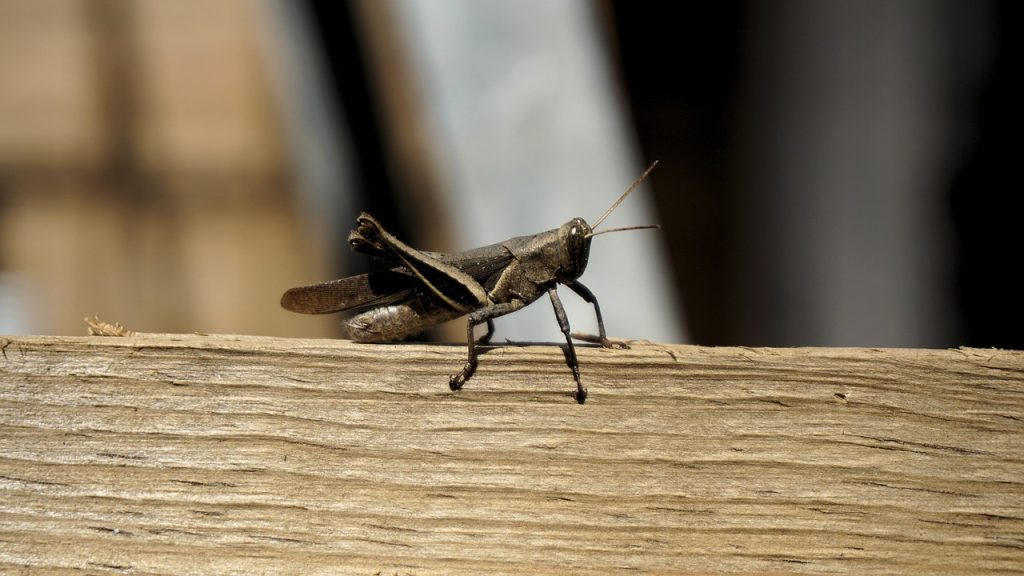
While grasshoppers and crickets are often confused, locusts are another player in the game. Locusts are actually a type of grasshopper that becomes more active and migratory in large groups. The major difference between crickets vs grasshoppers vs locusts is that locusts are known for forming massive swarms that can devastate crops, a behavior not seen in crickets or typical grasshoppers.
Conclusion: Understanding Cricket vs Grasshopper
Knowing the differences between crickets and grasshoppers helps you identify and manage these insects effectively. Whether you’re curious about grasshopper and cricket behavior or need to handle an infestation, understanding cricket vs grasshopper is key. For expert help, NaturalCare Pest Control is here to provide eco-friendly solutions that keep your home pest-free.
Ready to tackle those pesky crickets or grasshoppers? Contact us today for a consultation!
FAQs About Cricket vs Grasshopper
What is the difference between a cricket and a grasshopper?
Crickets have long antennae and make noise by rubbing their wings together. Grasshoppers have shorter antennae, make noise by rubbing their legs against their wings, and are better fliers.
Can crickets fly?
Yes, but not all cricket species are strong fliers. They mostly use their wings to chirp
Can grasshoppers fly?
Yes, grasshoppers are quite skilled at flying, using their strong legs to launch into the air.
Do crickets make noise?
Yes, male crickets chirp by rubbing their wings together to attract mates.
Do grasshoppers chirp?
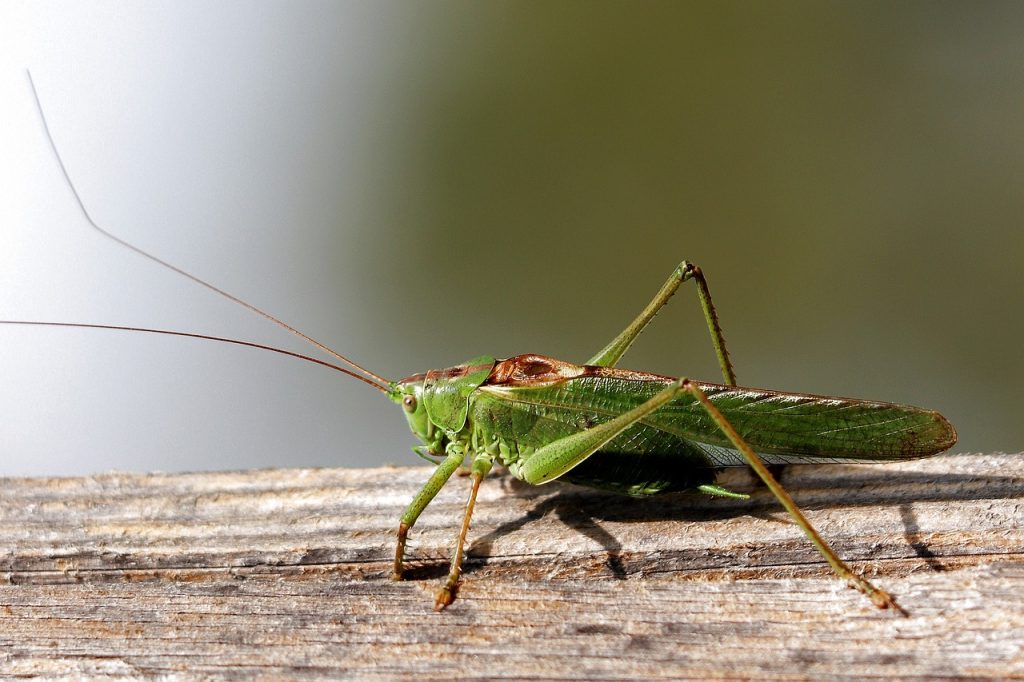
Grasshoppers don’t chirp like crickets; instead, they make a buzzing noise by rubbing their legs against their wings.
Are crickets nocturnal?
Yes, crickets are most active at night.
Where does the grasshopper live?
Grasshoppers are typically found in grassy areas, meadows, and fields.
Are crickets herbivores?
Yes, crickets are primarily herbivores, but some species may eat small insects.
What are the types of grasshoppers?
There are various species of grasshoppers, each adapted to specific environments, such as fields, forests, and deserts.
Are crickets and grasshoppers the same?
No, crickets and grasshoppers belong to the same insect order but differ in physical characteristics, behavior, and sound production.
FAQs About NaturalCare Pest Control

How can NaturalCare Pest Control help with crickets and grasshoppers?
We offer eco-friendly pest control solutions to manage cricket and grasshopper infestations, ensuring your home is pest-free.
What makes NaturalCare Pest Control’s methods eco-friendly?
Our pest control solutions use safe, non-toxic methods that are effective against pests while protecting your family and the environment.
Does NaturalCare Pest Control offer a satisfaction guarantee?
Yes, we provide a 100% satisfaction guarantee with free callbacks if your expectations are not met.
How can I prevent crickets and grasshoppers from entering my home?
Sealing cracks, keeping your home dry, and maintaining cleanliness can help prevent these insects from entering your living space.
Why should I choose NaturalCare Pest Control?

With our commitment to eco-friendly practices, customer satisfaction, and expert knowledge, we provide reliable and safe pest control services tailored to your needs.

